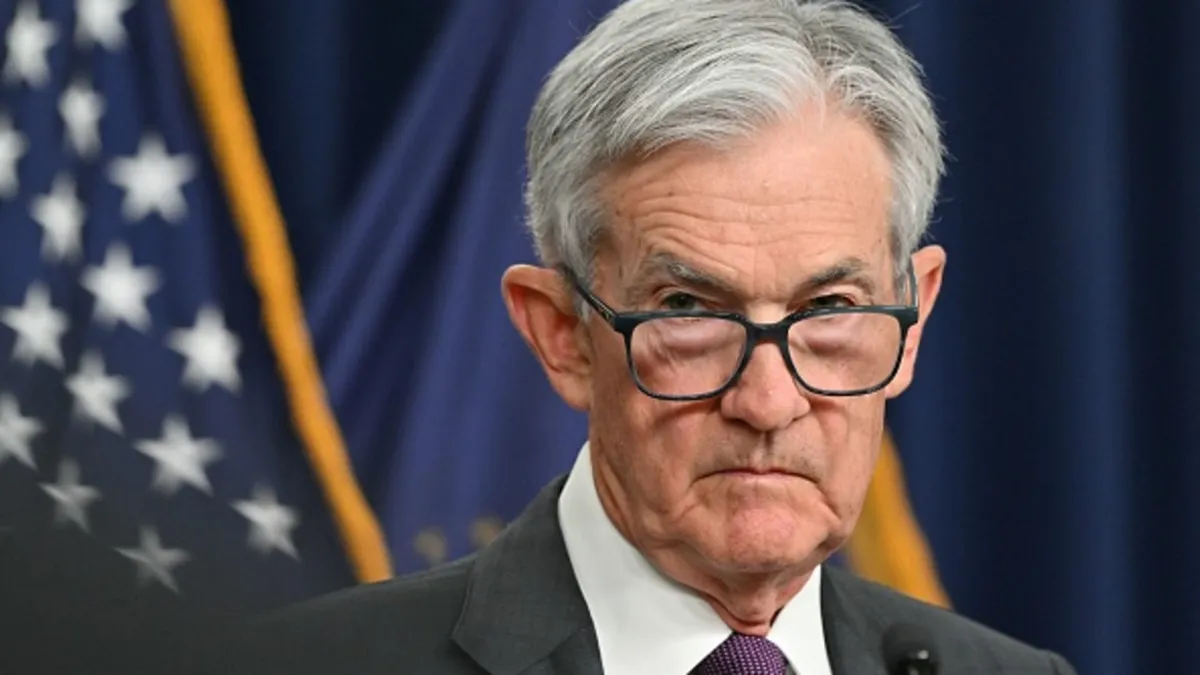
In a recent speech delivered before the Economic Club of Chicago, Federal Reserve Chair Jerome Powell expressed significant concern regarding the central bank's potential struggle to balance inflation control and economic growth. Powell highlighted the uncertainty surrounding the impact of President Donald Trump's tariffs, predicting a scenario where the Fed might have to choose between its dual mandate goals of stable prices and full employment. He stated, “We may find ourselves in the challenging scenario in which our dual-mandate goals are in tension.”
Powell elaborated on the complexities introduced by tariffs, which essentially serve as a tax on imports. While the historical correlation between tariffs and inflation has been inconsistent, Powell noted that these levies are likely to drive inflation higher while simultaneously hindering economic growth. In a subsequent question-and-answer session, he remarked that tariffs will probably lead us further from our economic goals for the remainder of the year.
Despite the challenges posed by tariffs, Powell refrained from providing specific guidance on the future direction of interest rates. He emphasized the Fed's current position of waiting for greater clarity before making any policy adjustments. This cautious stance reflects the Fed's dual responsibility to manage inflation while fostering economic growth.
As Powell spoke, stock markets experienced declines, and Treasury yields dropped. The Fed's approach to interest rates will depend on prevailing economic conditions. If inflation rises significantly, the Fed might opt to maintain or increase interest rates to curb demand. Conversely, a slowdown in growth could prompt a reduction in rates. Powell underscored the necessity of maintaining inflation expectations within reasonable limits.
According to the CME Group's FedWatch gauge, market participants anticipate that the Fed may begin lowering rates in June and implement three to four quarter-percentage-point cuts by the end of 2025. Fed officials generally perceive tariffs as a one-time impact on prices; however, the expansive nature of Trump's tariffs could shift this perception.
Powell indicated that both survey- and market-based metrics of near-term inflation are increasing, although the long-term forecast aligns closely with the Fed's target of 2% inflation. He projected that the Fed's key inflation measure would reach 2.6% by March. "Tariffs are highly likely to generate at least a temporary rise in inflation," Powell stated, acknowledging the potential for more persistent inflationary effects.
He explained that the persistence of these effects will depend on their magnitude, the duration of their impact on prices, and the ability to keep long-term inflation expectations well anchored. Powell's remarks echoed those from a previous speech he delivered earlier in the month, reinforcing concerns about the threats to both growth and inflation.
Looking at the broader economic landscape, Powell noted that the Gross Domestic Product (GDP) for the first quarter is expected to show minimal growth. He remarked, “The data in hand so far suggest that growth has slowed in the first quarter from last year's solid pace.” Despite strong motor vehicle sales, Powell indicated that overall consumer spending has exhibited only modest growth. Notably, strong imports in the first quarter, likely driven by businesses preparing for potential tariffs, are expected to negatively impact GDP growth.
Additionally, the Commerce Department reported a better-than-expected increase of 1.4% in retail sales for March, largely attributed to car buyers purchasing ahead of the tariffs. The Atlanta Fed has projected a GDP growth rate of -0.1% for Q1 when adjusting for atypical fluctuations in gold imports and exports.
Despite the anticipated slowdown in growth, Powell characterized the economy as being in a solid position. This assessment underscores the challenges the Federal Reserve faces in navigating the complexities of inflation and economic growth in the current environment.
Get Your Ticket to Pro LIVE - Join us at the New York Stock Exchange! In today's dynamic financial landscape, access to expert insights is paramount. As a CNBC Pro subscriber, we invite you to join us for our first exclusive, in-person CNBC Pro LIVE event at the iconic NYSE on Thursday, June 12.